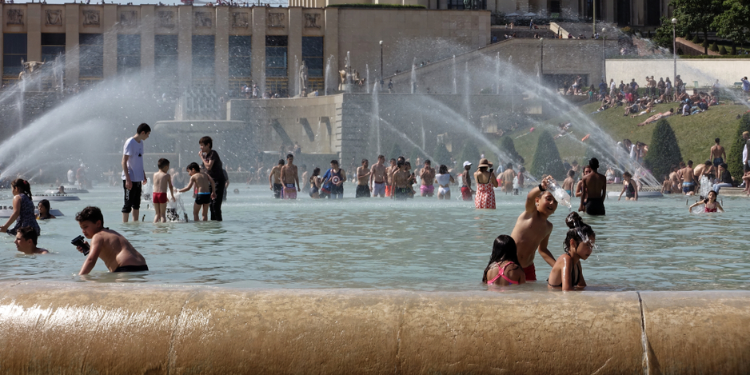
If you are living in the Northern Hemisphere, summer is upon us! And very high temperatures have been recorded this week in Europe, especially in France, Spain and the United Kingdom. And this means one thing: people will be outside. By the beach, at the pool, or just hanging out in parks, everyone will be trying to escape the -likely unbearable- heat of the indoors. What does this mean for the spread of the COVID-19? How to remain protected while enjoying the outdoors? And finally, what are some safe activities you can consider.
Up to 39 degrees in Paris and Madrid and up to 34 degrees in London. This week will be the hottest of the year for a lot of European countries. And this means people will likely be escaping the indoors and moving closer to the beach, the pool, parks etc… At the same time, most European countries are still struggling with the COVID-19 pandemic. While the spread of the epidemic has been controlled in most European countries, more than 15, 000 confirmed cases are being recorded daily on the European continent with Russia, the United Kingdom and Spain being the most affected.
While a heat wave is upon Western European countries, it seems there is a wide belief that the heat will mitigate the spread of the COVID-19. However, scientists have debunked this idea time and again. Indeed, the World Health Organization (WHO) has also stated that there is no evidence that the heat slows the COVID-19 spread. What does this mean? Simply that the extreme heat does not mean we can forget about social distancing, masks and sanitizing. The WHO has recommended that countries review their heat-health action plans to accommodate protection from the COVID-19 pandemic as well.
WHO recommended health advice include how to differentiate between symptoms that are both indicative of COVID-19 and heat stress. For example, hyperthermia and fever. The latter being a symptom of COVID-19, it is important to be aware of the difference and not run to hospitals as soon as a temperature change is observed. This will avoid clogging medical services as well as reduce exposure to the COVID-19. If you observe your body temperature changing, it is important to rest for at least 30 minutes in a cool area and hydrate. If this lowers your body temperature, then the rise was probably due to thermal stress.
A lot of measures usually prescribed to avoid heat stress are contradictory to measures to prevent the spread of COVID-19. Indeed, for example, staying indoors in cool places which in the absence of residential air conditioning sometimes means air conditioned shopping centres or libraries and other public places, checking in on vulnerable persons, the use of fans, and seeking medical assistance in case of heat stress symptoms.
It is important to remember that when seeking shade and cool in shopping centres and public spaces, one must at all times respect the 1m distance rule as well as wear masks at all times. It is important to regularly sanitize or wash the hands. Furthermore, if residential air conditioning is not an option, there are other low-cost and low-tech options. There are also interrogations on whether air conditioning increases the spread of the COVID-19. Once again, if the system is well-maintained and barrier measures are being implemented in the air-conditioned space, this should not increase the risks of COVID-19 spread. On the other hand, however, the use of fans does increase the risks of the spread of coronavirus, especially when there are several individuals present in a relatively small space.
While it is important to check on vulnerable people during these times of extreme heat. It is recommended to avoid doing so in person. Especially, if one is going to work, shopping and having regular interaction with public places like public transport. In such cases, phone calls are to be preferred to physical contact.
Finally, the salt in sea water and chlorine in pools all help kill viruses. However, it is important that measures are taken around these areas to curb the spread of the virus. Social distancing measures are to be respected and public amenities around these areas need to remain at acceptable standards of hygiene and cleanliness.



















